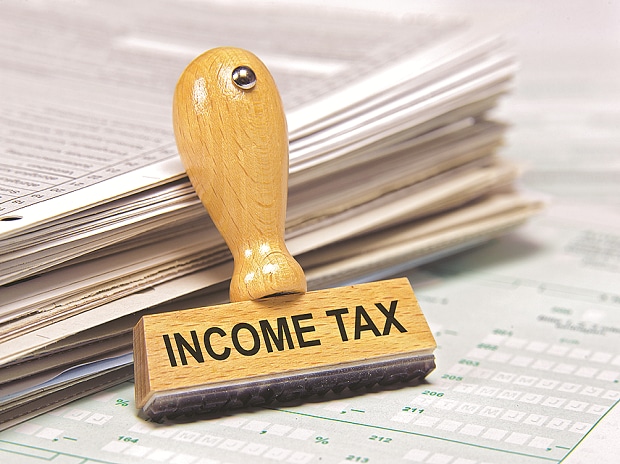WHAT IS LONG-TERM CAPITAL GAINS TAX, OR LTCG

Long-term Capital Gains Tax, Or LTCG
Capital gains mean the profit earned by an individual on the sale of his investment in assets such as stocks, real estate, bonds, commodities, etc. Basically, it is the 'gain' made on 'capital investment'. In some tax jurisdictions — a country, state or city — capital gains are taxed if an individual sells an asset after holding it for a certain 'long' period. This period is often twelve months. However, it could also be defined differently for various assets.
In India, 'long-term' and 'short-term' are defined by the Income Tax Act, 1961. While a holding period of one year is considered 'long-term' for equities, the same is two years for real estate.
The Union Budget 2018 proposed to levy long-term capital gains tax (LTCG) of 10 per cent on gains exceeding Rs 100,000 from sale of equity shares. However, no change was made in the definition of short-term capital gains tax (STCG).
LTCG on sale of shares / stocks was removed in 2005, making India one of the most liberal stock market regimes. However, there were demands from a section of stakeholders that the LTCG tax on equities be brought back. The BSE had reportedly told the government that the revenue forgone on the LTCG tax exemption on listed securities could be as high as Rs 50,000 crore per year.
Another change that was made in the Union Budget 2018 was that an individual could get an exemption by investing long-term capital gains from the sale of house property in up to two house properties, against the earlier provision of investment in one house property with same conditions. However, the capital gains on the sale was restricted at Rs 2 crore for the exemption.
The LTCG and STCG tax rates also vary based on the asset class — they might be different for equities, real estate, bonds, mutual funds etc — and the income tax slab an individual falls under.
RELATED BUDGET TERMS
LONG-TERM CAPITAL GAINS TAX OR LTCG NEWS
-
 BS Number Wise: A case for taxing India's rich on stock market profits
BS Number Wise: A case for taxing India's rich on stock market profits
As economic inequality in the country widens, crorepatis pay very little on long-term capital gains| January 28, 2022, Friday -
 How insurance sector will gain from FM Sitharaman's Budget booster
How insurance sector will gain from FM Sitharaman's Budget booster
What do the Budget proposals, as well as the proposed LIC IPO and privatisation of one general insurance company mean for the ...| March 04, 2021, Thursday -
 Budget 2021 offers tax sops for aircraft leasing in GIFT City
Budget 2021 offers tax sops for aircraft leasing in GIFT City
Tax holiday on capital gains, tax exemption for aircraft lease rentals paid to foreign lessors| February 01, 2021, Monday -
 Budget 2021: FM extends tax holiday, capital gains exemption for startups
Budget 2021: FM extends tax holiday, capital gains exemption for startups
Experts say since most startups are loss making, tax holiday will have limited immediate impact on them| February 01, 2021, Monday -
 Scrip-wise info in ITR must only for those seeking LTCG exemption: CBDT
Scrip-wise info in ITR must only for those seeking LTCG exemption: CBDT
Direct tax body denies reports that stock or day traders are required to furnish scrip wise details in return of income for AY ...| September 26, 2020, Saturday -
 How to claim income tax deduction for investments made in April - July 2020
How to claim income tax deduction for investments made in April - July 2020
One of the key points to note while accounting for these investments made from April to July is that a deduction once claimed in ...| July 02, 2020, Thursday -
 Brace for volatility as Budget hangover, coronavirus keeps markets on edge
Brace for volatility as Budget hangover, coronavirus keeps markets on edge
Most experts have now turned cautious on the road ahead for the stock market - at least in the short-to-medium term - as they ...| February 02, 2020, Sunday -
 Shares bought on January 31 cannot be sold on the Budget day. Here's why
Shares bought on January 31 cannot be sold on the Budget day. Here's why
NSE, BSE to conduct a special trading session on February 1; settlement of trades on February 4| January 31, 2020, Friday -
 Budget 2020: Booster likely for capital gains on property and equity
Budget 2020: Booster likely for capital gains on property and equity
The breakthrough measure, if it materializes, will be doing away with capital gains on sale of property| January 27, 2020, Monday -
 IVCA seeks tax parity, approval for AIFs to invest in NBFCs ahead of budget
IVCA seeks tax parity, approval for AIFs to invest in NBFCs ahead of budget
"LTCG for unlisted shares (invested by AIFs that are regulated by SEBI) should be reduced to 10 per cent. Enhanced surcharge ...| January 25, 2020, Saturday






